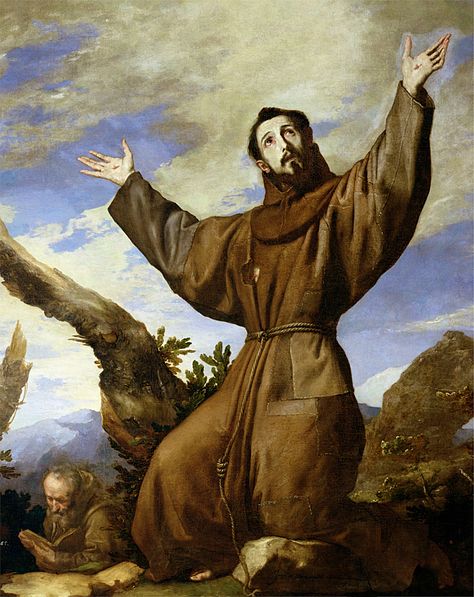I was reminded that in all of my time as a medievalist I've never come across this prayer as a historical artifact. It's recited all over the world, but never once has it come up in a medieval text or a lecture. Why? Because Francis didn't write it. It's actually from the 20th century.
That was a shock to me. And it comes on the heels of a similar realization I had a few weeks ago - Francis also never said "Preach the gospel at all times, and when necessary use words." That quote has been attributed to him for a long time, but it's origins are unclear. We've really exaggerated Francis.
Also, he caught a fish that big.
It goes on.
What about the hymn, 'All Creatures of Our God and King?' (One of my favorites.) Nope. His name appears in the margins, but that's only because the song references something Francis wrote called Canticle of the Sun.
Francis is said to have been the first person to experience the stigmata, but as far as I can tell he never made that claim - others made it for him.
A famous book called Little Flowers of St. Francis sits on my shelf, but it was written more than century after the Saint's death. Poor Francis has been misquoted a great deal.
That doesn't make the prayer any less potent. I pull it out of my coat pocket on the way to the train and read it, every morning, and it provides quite a challenge:
- Lord, make me an instrument of Your peace;
- Where there is hatred, let me sow love;
- Where there is injury, pardon;
- Where there is error, truth;
- Where there is doubt, faith;
- Where there is despair, hope;
- Where there is darkness, light;
- And where there is sadness, joy.
- O Divine Master, Grant that I may not so much seek
- To be consoled as to console;
- To be understood as to understand;
- To be loved as to love.
- For it is in giving that we receive;
- It is in pardoning that we are pardoned;
- And it is in dying that we are born to eternal life.

No comments:
Post a Comment